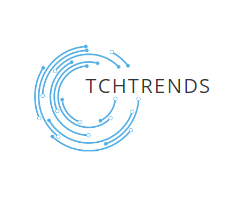The retail industry is undergoing a profound digital transformation, with software playing a pivotal role in enhancing customer experiences, optimizing operations, and managing inventories. However, the rapid evolution of retail software also exposes businesses to a myriad of security threats. From customer data breaches to financial fraud, the consequences of inadequate security measures can be severe.
This article explores crucial security measures that must be implemented during the retail ecommerce software development to ensure robust protection against cyber threats.
Important Security Measures in retail ecommerce software development
1. Data Encryption and Privacy- Retail software often deals with sensitive customer information, including personal details and financial data. Implementing robust encryption mechanisms for data at rest and in transit is paramount. Utilizing strong encryption algorithms and secure key management practices ensures that even if unauthorized access occurs, the data remains unreadable and protected. Additionally, retailers should comply with data protection regulations, such as GDPR and PCI DSS, to safeguard customer privacy and avoid legal repercussions.
2. Secure Payment Processing- One of the critical areas in retail software is payment processing. Implementing secure payment gateways with encryption ensures that financial transactions are protected from interception and tampering. Adhering to Payment Card Industry Data Security Standard (PCI DSS) guidelines is essential for ensuring the secure handling of credit card information. Regular security audits and penetration testing should be conducted to identify and rectify vulnerabilities in payment processing systems.
3. Authentication and Access Controls- Retail software should employ robust authentication mechanisms to ensure that only authorized personnel have access to sensitive functionalities and data. Multi-factor authentication adds an extra layer of security by requiring users to verify their identity through multiple means. Access controls should be finely tuned to grant employees access only to the information and features necessary for their roles, reducing the risk of unauthorized access and potential data breaches.
4. Regular Security Training for Retail Staff- Human error is a common cause of security breaches. Retail employees should receive regular training on security best practices, recognizing phishing attempts, and understanding the importance of protecting customer information. A well-informed staff is a crucial line of defense against social engineering attacks and inadvertent security lapses.
5. Inventory Management Security- Retail software often includes inventory management modules, which are critical to the smooth operation of the business. Implementing secure coding practices and conducting regular code reviews for these modules is essential to identify and rectify vulnerabilities. Additionally, access to inventory management features should be restricted, and audit logs should be maintained to monitor changes and detect any suspicious activities.
6. Security Patch Management- Vulnerabilities in software are regularly discovered, and vendors release patches to address these issues. Retail software must have a robust patch management process to promptly apply security updates. Delayed or neglected patches can expose the software to known vulnerabilities, making it an easy target for attackers. Automated tools can assist in the efficient and timely application of patches.
7. Securing Customer-Facing Applications- With the rise of e-commerce, customer-facing applications are a prime target for cybercriminals. Secure coding practices, input validation, and thorough testing should be employed to eliminate common vulnerabilities, such as SQL injection and cross-site scripting. Web application firewalls (WAFs) can add an extra layer of defense by monitoring and filtering HTTP traffic between a web application and the Internet.
8. Mobile Security for Retail Apps– As mobile devices become integral to the retail experience, security measures for retail mobile apps are critical. Secure coding, encryption of data at rest, and secure communication protocols are essential for protecting sensitive information on mobile devices. Regular security assessments, including mobile application testing, help identify and mitigate vulnerabilities unique to the mobile platform.
9. Incident Response Planning- Despite the best preventive measures, security incidents may still occur. Having a well-defined incident response plan ensures that the organization can respond promptly and effectively to minimize the impact of a security breach. The plan should include communication strategies, steps for containment, and a post-incident analysis to improve security measures and prevent future incidents.
10. Continuous Monitoring and Threat Intelligence- Continuous monitoring of network traffic, system logs, and user activities is crucial for detecting and responding to security threats in real-time. Employing threat intelligence feeds helps organizations stay informed about emerging threats and vulnerabilities specific to the retail sector. Proactive monitoring and threat intelligence enable retailers to adapt quickly to evolving security risks.
Final Thoughts
As the retail & ecommerce software development embraces digital innovation, the security of software solutions becomes a non-negotiable aspect of business operations. Implementing robust security measures throughout the development lifecycle is essential to protect customer data, financial transactions, and the overall integrity of retail software.
By adopting a proactive approach to security, retailers can not only safeguard their digital assets but also build trust with customers, ensuring a secure and seamless shopping experience in an increasingly interconnected and technology-driven retail landscape.

